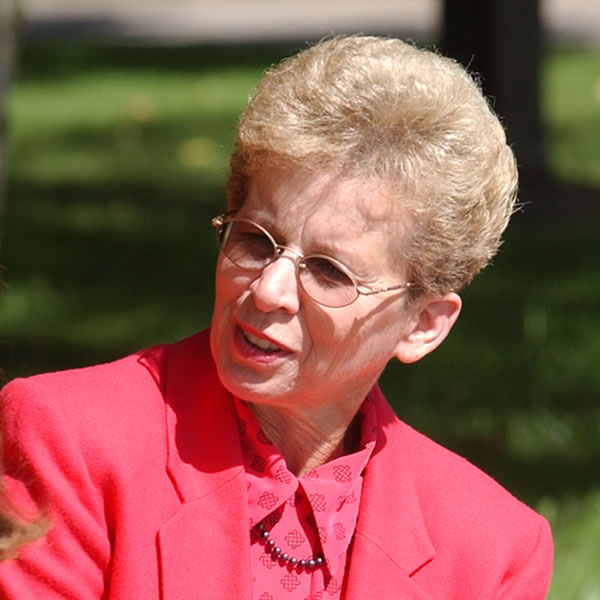
“Under Youngblood’s tenure, the university improved its image and increased its clout in Lansing to the point where it benefited the most or very significantly in a number of funding situations. In 2007, State Representative Gary McDowell (D-Rudyard) credited Youngblood with much behind-the-scenes effort when he announced that LSSU benefited the most in the 2007 House bill for higher education funding.”
LSSU President Betty J. Youngblood retired in September 2007 after five years of service.
The Macomb County, Michigan native came to LSSU in July 2002 from Western Oregon University, where she served as president and also held the rank of professor of political science. Previously, she was chancellor of the University of Wisconsin-Superior.
Early in her almost 40 year career in higher education, Youngblood taught political science after earning a bachelor of arts in South Asian area studies at Oakland University and a master’s degree in South Asian area studies and a Ph.D. in political science, both from the University of Minnesota.
Her teaching took her to Texas Tech University, the University of West Georgia, and Kennesaw State University (Georgia). At Kennesaw, she moved into administration and later served as vice president for academic affairs at Wesley College (Delaware) and MacMurray College (Illinois), before serving at the University of Wisconsin-Superior, Western Oregon University, and LSSU.
Youngblood inherited very substantial structural deficits in LSSU’s operating and plant budgets. This situation was further complicated by the loss of significant state funding as Michigan’s economy weakened and the state cut appropriations to all universities on several occasions. Youngblood and the staff made many difficult and challenging budgetary decisions in order to stabilize and ultimately improve the budgetary situation at LSSU. The university’s strategic planning activities helped guide these decisions and position the university for stability and growth.
Under Youngblood’s tenure, the university improved its image and increased its clout in Lansing to the point where it benefited the most or very significantly in a number of funding situations. In 2007, State Representative Gary McDowell (D-Rudyard) credited Youngblood with much behind-the-scenes effort when he announced that LSSU benefited the most in the 2007 House bill for higher education funding.
Youngblood consistently made friends for LSSU and very effectively presented the university’s case in Lansing. She is credited with winning support and securing funding for several LSSU projects in state capital outlay bills. With the help of former State Representative Scott Shackleton (R-Sault Ste. Marie), Youngblood was successful in securing an additional $4 million for the LSSU Arts Center as well as funds to upgrade the university’s electrical system.
Some milestones during Youngblood’s tenure include:
